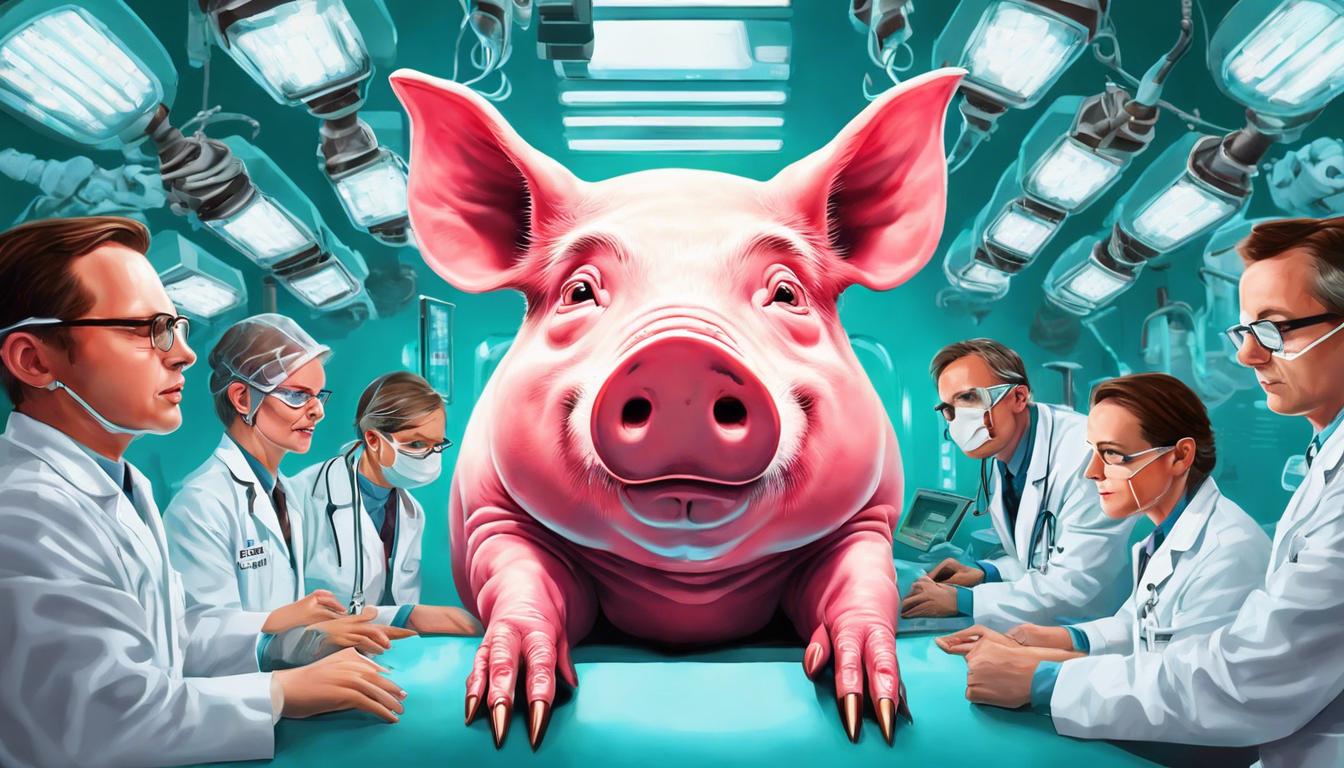Surgeons at Massachusetts General Hospital in Boston have successfully transplanted a genetically modified pig kidney into a patient, marking a significant breakthrough in addressing the organ transplant shortage.
Surgeons at Massachusetts General Hospital in Boston have achieved a medical milestone by successfully transplanting a genetically modified pig kidney into a 62-year-old man, Richard “Rick” Slayman, who was suffering from end-stage kidney disease. This historic operation, which took place recently, marks the first time a pig kidney has been transplanted into a living person, potentially paving the way for new solutions to the critical shortage of human organs for transplantation.
The kidney used in the transplant came from a pig that had undergone genetic modifications through CRISPR-Cas9 technology, a process developed by Massachusetts-based biotechnology company eGenesis. This technology allowed scientists to remove certain pig genes and replace them with human genes to make the organ more compatible with the human body. The operation, lasting four hours, represents a significant breakthrough in the field of xenotransplantation, which involves transplanting animal organs into human patients.
This medical advancement offers hope to many, as there are over 100,000 people on the national transplant waiting list in the United States alone, with approximately 17 individuals dying each day while waiting for a transplant. The successful procedure on Mr. Slayman, who is expected to be discharged soon after a successful recovery, is a significant step forward in addressing this shortage.
The surgery follows previous attempts at xenotransplantation, which have not always been successful. For instance, Lawrence Faucette, who received a pig heart transplant at the University of Maryland, sadly passed away shortly after the procedure. Despite such challenges, the success of Mr. Slayman’s kidney transplant represents a hopeful advancement in the continued effort to find viable solutions for those in need of organ transplants.













